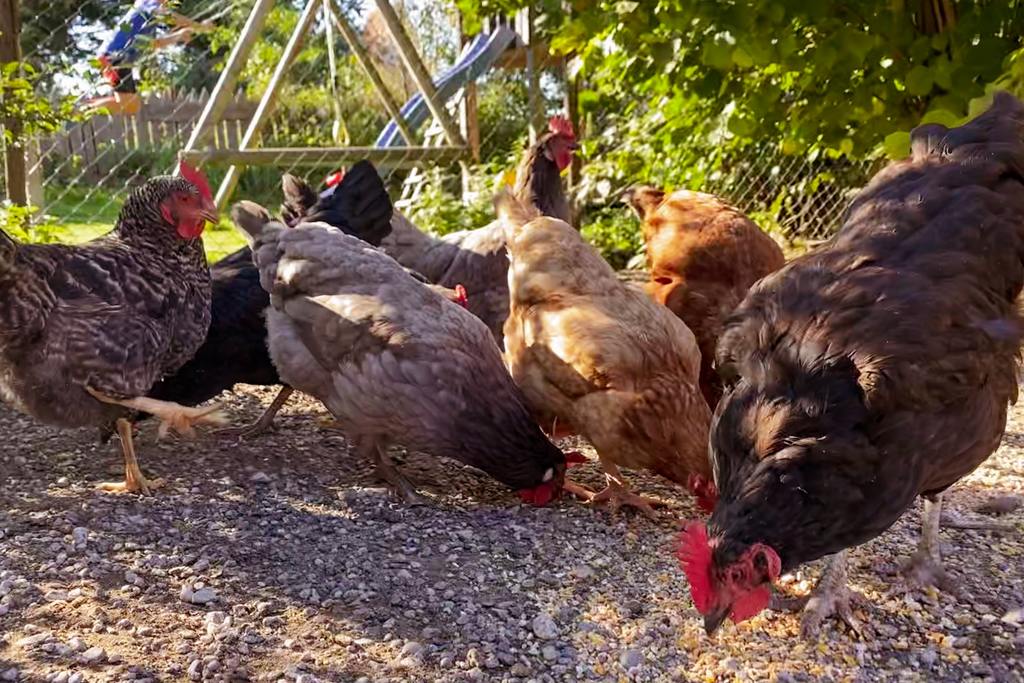Chicken Gut Health and How To Support It
Just like the human body has bacteria, fungi, and viruses that make up the microbiota in our gut, so do chickens. These microorganisms are vital to the overall health and wellbeing of your birds and necessary for their growth.
Anatomy
In order to know how to best take care of your chickens, it is important to learn about how their digestive system works. We will go into further detail below about what happens after your chicken picks up their food and uses their tongue to push their food into their esophagus.
The crop
The crop (sometimes referred to as the “craw”) is directly after the esophagus. If you have felt it on your chicken before, then you may have been concerned that it had a tumor. But rest assured, this is the expandable compartment where food is stored until it is broken down further in the digestive process. Because of this, you can see a bulge in this area with your naked eye. Food can remain in this storage area for up to 12 hours.
Proventriculus
The proventriculus is the stomach and this is where digestive “juices” or enzymes break down the food, similarly to how our stomachs work. It is also referred to as the glandular stomach.
Gizzard
Since chickens do not have teeth, the gizzard is where the “chewing” or grinding of the food happens. This is done by stones or grit that your chicken picks up in its environment as it eats. Therefore, the gizzard is referred to as the muscular stomach.
Small intestine
The small intestine includes the duodenum, jejunum, and ileum. The purpose of the small intestine is to absorb the nutrients from the food that has been broken down and further aid the process of digestion.
Large intestine
The large intestine includes the ceca, colon, and rectum. The purpose of the large intestine is to separate out the water from the food that is no longer beneficial to the chicken (does not provide nutrients). The large intestine also supports removing waste.
Gut Health
There are hundreds of species of bacteria in a chicken’s gut that support immunity, fight against disease and infection, and maintain its health. The main things that affect your bird’s gut are their environment, how you take care of them, and what you feed them.
So why is it so important? Well, if your chicken’s gut is healthy, then the digestive process will flow smoothly and work as it should and give your bird all the nutrients it needs to be healthy. However, if your chicken’s gut is not working properly, then your bird is at higher risk for disease, infection, and possibly even malabsorption.
It is also crucial to the quality of its eggs and the quality of meat (if your chickens are used for this purpose).
Prebiotics, Probiotics, and Postbiotics
There are things you can do to support the growth, immunity, and overall health of your chickens and that is incorporating supplements or food into their diet that will boost their immune system.
Prebiotics
Prebiotics act like food for the bacteria in your gut. They are indigestible plant fiber that helps stimulate the growth of good bacteria. You can find prebiotics in high-fiber foods such as:
- Berries
- Garlic
- Sauerkraut
- Dairy (cheese and yogurt)
- Black Soldier Fly Grub
Probiotics
Probiotics can be found in supplements or food and while your chickens can get healthy bacteria naturally from your yard or treats that you give them, probiotics are important to keep your chickens happy and healthy.
Probiotics do the following:
- Supports the immune system
- Helps with quality egg production
- Encourages the growth of good bacteria
- Aids in growth rates of your birds
- Helps fight infection and disease
Sometimes it is necessary to treat a specific disease with antibiotics, but antibiotics kill off the healthy bacteria as well and can leave your chicken defenseless. You can incorporate probiotics by sprinkling some on your chicken’s feed. A great source of probiotics and additional nutrition can be found in Supreme Grubs Black Soldier Fly Larvae.
Postbiotics
Postbiotics are the end result of probiotics going through the fermentation process, and they are commonly found in fermented foods such as:
- Kimchi
- Yogurt
- Sauerkraut
- Apple Cider Vinegar
Resources
You can find more information about prebiotics, probiotics, and postbiotics and how they benefit your birds in our previous blog article here.

